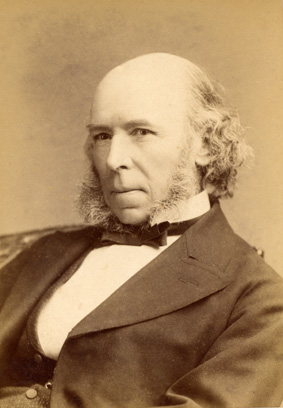An abbreviation is a shortened form of a word or phrase, by any method including shortening, contraction, initialism or crasis.
A recursive acronym is an acronym that refers to itself, and appears most frequently in computer programming. The term was first used in print in 1979 in Douglas Hofstadter's book Gödel, Escher, Bach: An Eternal Golden Braid, in which Hofstadter invents the acronym GOD, meaning "GOD Over Djinn", to help explain infinite series, and describes it as a recursive acronym. Other references followed, however the concept was used as early as 1968 in John Brunner's science fiction novel Stand on Zanzibar. In the story, the acronym EPT later morphed into "Eptification for Particular Task".

A figure of speech or rhetorical figure is a word or phrase that intentionally deviates from ordinary language use to produce a rhetorical effect. Figures of speech are traditionally classified into schemes, which vary the ordinary sequence of words, and tropes, where words carry a meaning other than what they ordinarily signify.
Pleonasm is redundancy in linguistic expression, such as "black darkness," "burning fire," "the man he said," or "vibrating with motion." It is a manifestation of tautology by traditional rhetorical criteria and might be considered a fault of style. Pleonasm may also be used for emphasis, or because the phrase has become established in a certain form. Tautology and pleonasm are not consistently differentiated in literature.

In the English language, there are grammatical constructions that many native speakers use unquestioningly yet certain writers call incorrect. Differences of usage or opinion may stem from differences between formal and informal speech and other matters of register, differences among dialects, and so forth. Disputes may arise when style guides disagree with each other, or when a guideline or judgement is confronted by large amounts of conflicting evidence or has its rationale challenged.
Nonsense is a communication, via speech, writing, or any other symbolic system, that lacks any coherent meaning. In ordinary usage, nonsense is sometimes synonymous with absurdity or the ridiculous. Many poets, novelists and songwriters have used nonsense in their works, often creating entire works using it for reasons ranging from pure comic amusement or satire, to illustrating a point about language or reasoning. In the philosophy of language and philosophy of science, nonsense is distinguished from sense or meaningfulness, and attempts have been made to come up with a coherent and consistent method of distinguishing sense from nonsense. It is also an important field of study in cryptography regarding separating a signal from noise.

"Survival of the fittest" is a phrase that originated from Darwinian evolutionary theory as a way of describing the mechanism of natural selection. The biological concept of fitness is defined as reproductive success. In Darwinian terms, the phrase is best understood as "survival of the form that in successive generations will leave most copies of itself."

Self-referential humor, also known as self-reflexive humor, self-aware humor, or meta humor, is a type of comedic expression that—either directed toward some other subject, or openly directed toward itself—is self-referential in some way, intentionally alluding to the very person who is expressing the humor in a comedic fashion, or to some specific aspect of that same comedic expression. Here, meta is used to describe that the joke explicitly talks about other jokes, a usage similar to the words metadata, metatheatrics and metafiction. Self-referential humor expressed discreetly and surrealistically is a form of bathos. In general, self-referential humor often uses hypocrisy, oxymoron, or paradox to create a contradictory or otherwise absurd situation that is humorous to the audience.

An acronym is an abbreviation of a phrase that usually consists of the initial letter of each word in all caps with no punctuation.
In linguistics, a redundancy is information that is expressed more than once.
Shm-reduplication is a form of reduplication originating in Yiddish in which the original word or its first syllable is repeated with the copy beginning with shm-, pronounced. The construction is generally used to indicate irony, sarcasm, derision, skepticism, or lack of interest with respect to comments about the discussed object. In general, the new combination is used as an interjection.
Reliability, availability and serviceability (RAS), also known as reliability, availability, and maintainability (RAM), is a computer hardware engineering term involving reliability engineering, high availability, and serviceability design. The phrase was originally used by International Business Machines (IBM) as a term to describe the robustness of their mainframe computers.

A vertically transmitted infection is an infection caused by pathogenic bacteria or viruses that use mother-to-child transmission, that is, transmission directly from the mother to an embryo, fetus, or baby during pregnancy or childbirth. It can occur when the mother has a pre-existing disease or becomes infected during pregnancy. Nutritional deficiencies may exacerbate the risks of perinatal infections. Vertical transmission is important for the mathematical modelling of infectious diseases, especially for diseases of animals with large litter sizes, as it causes a wave of new infectious individuals.
In mathematical logic, a tautology is a formula or assertion that is true in every possible interpretation. An example is "x=y or x≠y". Similarly, "either the ball is green, or the ball is not green" is always true, regardless of the colour of the ball.
Procedure words are words or phrases limited to radio telephone procedure used to facilitate communication by conveying information in a condensed standard verbal format. Prowords are voice versions of the much older procedural signs for Morse code which were first developed in the 1860s for Morse telegraphy, and their meaning is identical.
Corporate jargon is the jargon often used in large corporations, bureaucracies, and similar workplaces. The language register of the term is generally being presented in a negative light or disapprovingly. It is often considered to be needlessly obscure or, alternatively, used to disguise an absence of information. Its use in corporations and other large organisations has been widely noted in media.
In common usage and linguistics, concision is a communication principle of eliminating redundancy, generally achieved by using as few words as possible in a sentence while preserving its meaning. More generally, it is achieved through the omission of parts that impart information that was already given, that is obvious or that is irrelevant. Outside of linguistics, a message may be similarly "dense" in other forms of communication.
RSVP is an initialism derived from the French phrase "Répondez s'il vous plaît", meaning "Please respond", to require confirmation of an invitation. The initialism "RSVP" is no longer used much in France, where it is considered formal and old-fashioned. In France, it is now more common to use "Réponse attendue avant le ...", meaning "[Your] answer is expected before ...". In addition, the French initialism "SVP" is frequently used to represent "S'il vous plaît" ("Please").
In literary criticism and rhetoric, a tautology is a statement that repeats an idea, using near-synonymous morphemes, words or phrases, effectively "saying the same thing twice". Tautology and pleonasm are not consistently differentiated in literature. Like pleonasm, tautology is often considered a fault of style when unintentional. Intentional repetition may emphasize a thought or help the listener or reader understand a point. Sometimes logical tautologies like "Boys will be boys" are conflated with language tautologies, but a language tautology is not inherently true, while a logical tautology always is.






